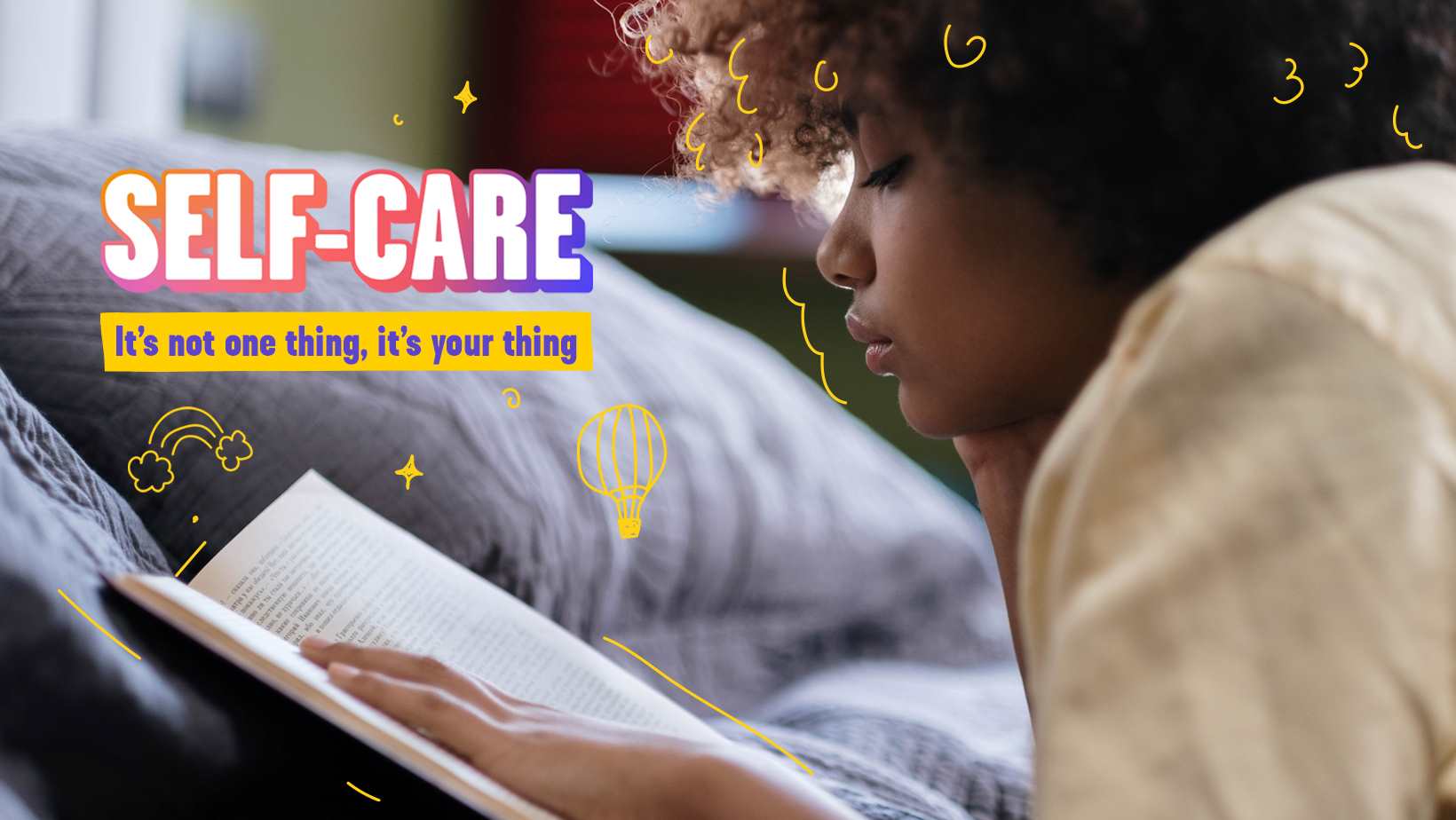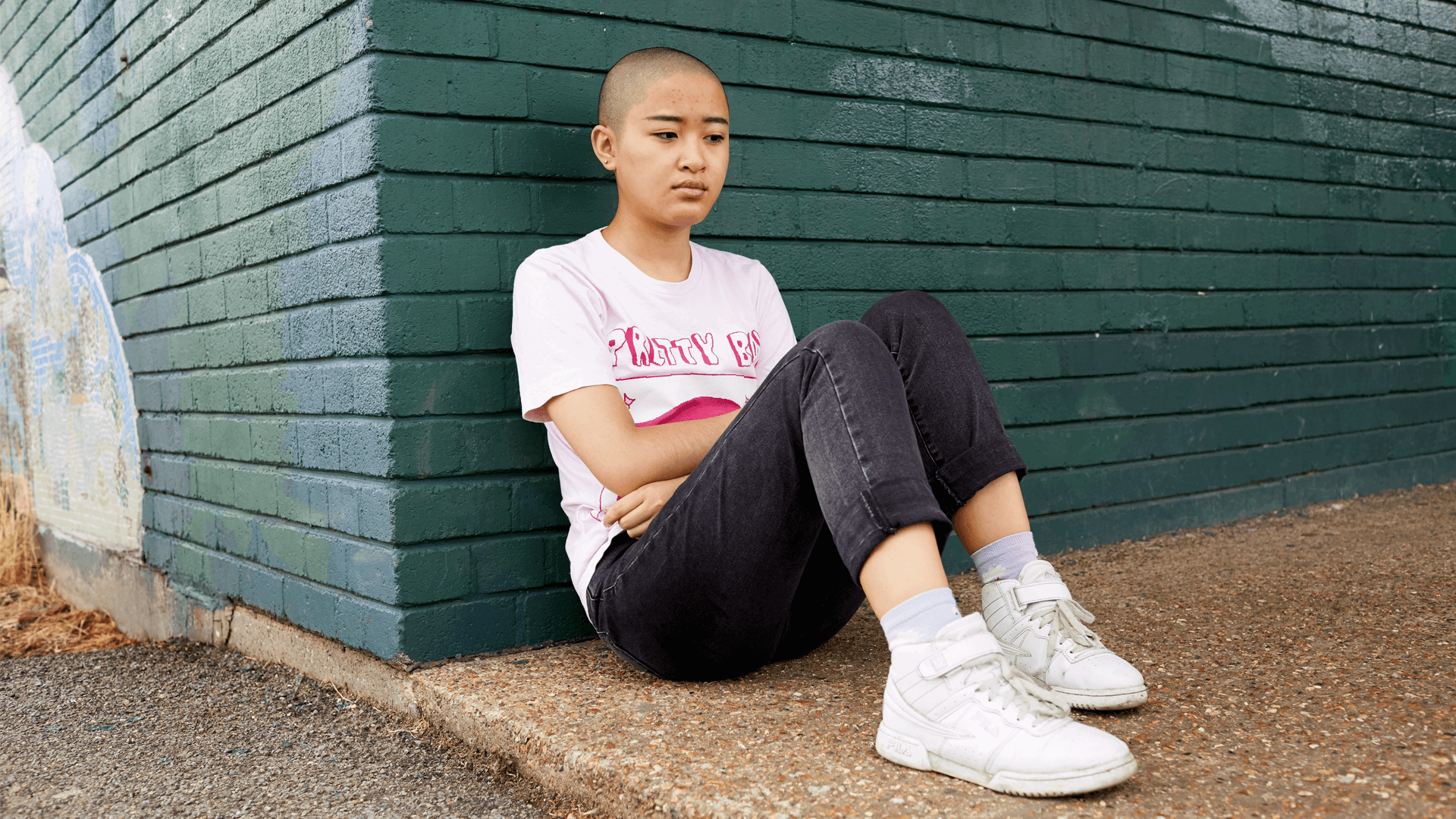Topics mentioned: self-care
About: When we're struggling with our mental health, it's more important than ever to practise self-care, but it can also be harder. Here Lorna shares her advice.
Once I started making sure I did at least one thing solely for myself every day, I really started to notice a difference in how I felt.
Self-care really just means taking care of yourself and doing anything that helps you. The basics of self-care include things like personal hygiene, food, sleep, water, movement and companionship. However, when our mental health is really bad, or we’re very busy or overly stressed, any self-care can feel impossible.
For a long time, I didn’t prioritise self-care of any form. At the time, I didn’t really think it was worth it, but once I started making sure I did at least one thing solely for myself every day, I really started to notice a difference in how I felt – a little more able to face the world.
Why is it still important to practise self-care, regardless of any other factors?
Because you are worth it! The most important reason to practise self-care is because you deserve it – you deserve to be loved and cared for and supported, and we don’t all get that externally. Supporting yourself however you can in each moment is a step towards wellness. You’ve probably heard it before, but it can help to ask yourself how you would support a friend in your position or what you would suggest they do, then trying to show yourself the same care.
It can help to ask yourself how you would support a friend in your position or what you would suggest they do, then trying to show yourself the same care.
Okay, but I can’t get out of bed. How am I supposed to do self-care?
It’s important to remember self-care looks entirely different for everyone, even the basics, so try to use other people’s strategies as suggestions rather than prescriptive ideas.
Below are some tips from my experience. Remember that if you’re really struggling, you can talk to your GP or helplines (below) for advice and support.
-
Meet yourself where you are
For me, I often start with smaller practices rather than whatever my end goal is, whether that’s doing something less frequently than I’d like, or doing it in a different way or at a different time. If a shower is too much, could you wash your face and use dry shampoo? If a walk sounds impossible, could you do some simple stretches? If meeting up with a friend is too scary, could you watch a film together through Teleparty? I also always have a water bottle with me, and use apps and alarms to remind me to drink water regularly – for me drinking enough is non-negotiable as I’m prone to dehydration.
-
Get into a routine
You might find it helpful to get into a routine – for instance every Tuesday, Thursday and Sunday night you have a bath; every Saturday you move in whatever form suits you at that time. You’ll notice that I say “move” instead of “exercise”. For me, “exercise” has negative connotations (like school PE) and “movement” feels broader; it could be simple stretches or a short walk, a game of Ring Fit Adventure or a Pilates class – it’s simply about whatever works for you when you’re ready to move. A routine is also helpful to set up when you’re feeling better, so you don’t have to make one up from scratch if you begin to struggle.
-
Create a reward chart
You may also like some form of reward chart – like star charts you might have had when you were younger! I’m not ashamed to say I bought some small stickers and made myself a paper self-care star chart. You could also use an app such as Habits for this. For me, I gave myself a sticker for doing self-care activities like having a bath, playing games on my Switch, doing something creative, cleaning my teeth, eating three sensible meals a day and moving. I’d set myself goals with rewards, having bigger rewards for more difficult goals.
-
Don't be afraid to ask your friends for help
There’s no shame in needing help to be able to practise self-care. For me, I ask people I live with to prompt me if they notice I haven’t done something like eat or take a bath for a while. You and your friends can also help each other out! For example, while I was at university my friend struggled with phone calls and I struggled with tidying, but we could each do the other’s tasks – so she’d come to my room and I’d make her phone calls, while she helped me to tidy up and put the washing on. For me, it made it feel easier, because we were helping each other, rather than me not being able to offer anything. However, it’s also important to remember that asking for help when you’re not able to give anything in return is okay too – you deserve support, even if you can’t reciprocate right now.
-
Think about using technology to help
I also use technology to help with self-care. I have apps which remind me to take breaks, drink water, take medication and look after myself generally. Some of my favourite cute self-care apps are Plant Nanny (for drinking water), Aloe Bud and Finch. I also find some Twitter bots really helpful as they interrupt my scrolling with specific reminders, such as @tinycarebot and @selfcare_bot. You can also follow nice accounts on social media – I mostly follow ones which post animal pictures!
If a shower is too much, could you wash your face and use dry shampoo? If a walk sounds impossible, could you do some simple stretches?

More advice and tips on self-care
‘Self-care’ is a phrase you’ve probably come across, but what does it really mean?
We've launched a new campaign to scratch beyond the surface of self-care, looking at how self-care can help you, what to do when it feels impossible, and how you can find what self-care works for you.
Where to get help
However you're feeling, there are people who can help you if you are struggling. Here are some services that can support you.
-
Childline
If you’re under 19 you can confidentially call, chat online or email about any problem big or small.
Sign up for a free Childline locker (real name or email address not needed) to use their free 1-2-1 counsellor chat and email support service.
Can provide a BSL interpreter if you are deaf or hearing-impaired.
Hosts online message boards where you can share your experiences, have fun and get support from other young people in similar situations.
- Opening times:
- 24/7
-
Samaritans
Whatever you're going through, you can contact the Samaritans for support. N.B. This is a listening service and does not offer advice or intervention.
- Opening times:
- 24/7



